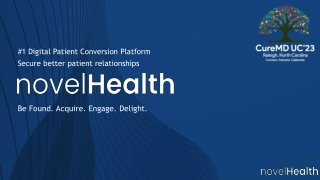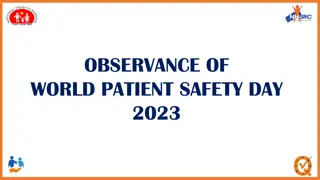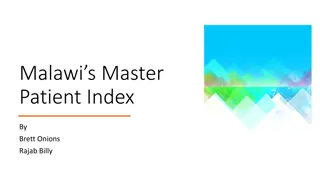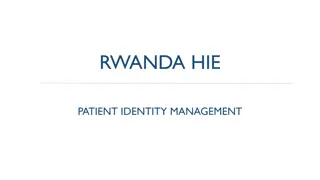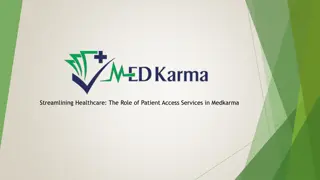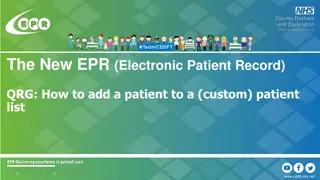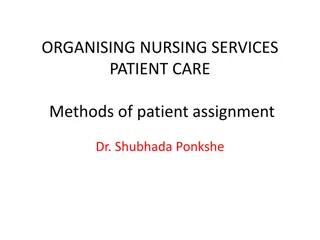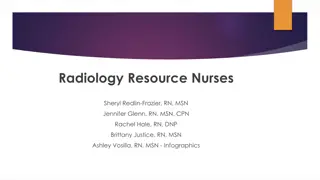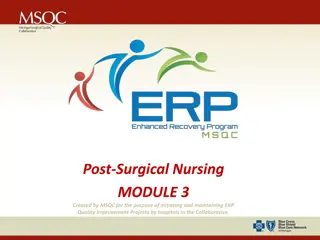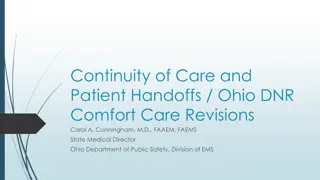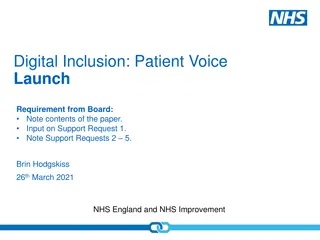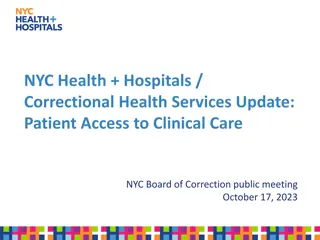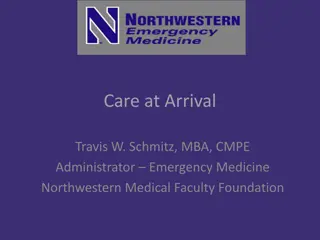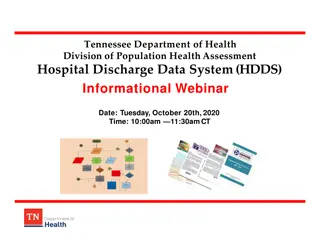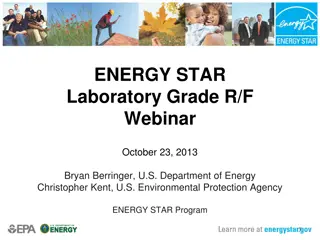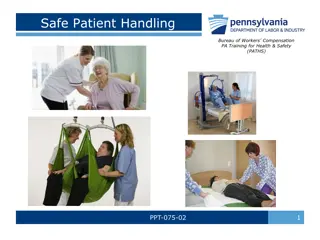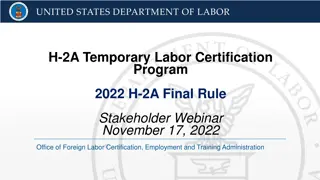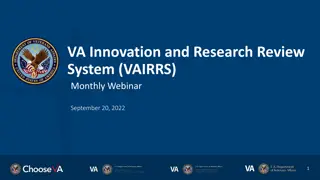
Insights into Familial Dysautonomia Drug Development Forum
Join the Familial Dysautonomia Voice of the Patient Forum on November 5th, 2020 to share your experiences living with the condition, discuss concerns, and explore meaningful treatments. Understand the importance of your voice in impacting FDA decisions for better treatments. Learn about the FDA's Patient-Focused Drug Development program and engage in stakeholder discussions. Discover the significance of early patient involvement in drug development processes.
Download Presentation

Please find below an Image/Link to download the presentation.
The content on the website is provided AS IS for your information and personal use only. It may not be sold, licensed, or shared on other websites without obtaining consent from the author. If you encounter any issues during the download, it is possible that the publisher has removed the file from their server.
You are allowed to download the files provided on this website for personal or commercial use, subject to the condition that they are used lawfully. All files are the property of their respective owners.
The content on the website is provided AS IS for your information and personal use only. It may not be sold, licensed, or shared on other websites without obtaining consent from the author.
E N D
Presentation Transcript
Familial Dysautonomia Voice of the Patient Forum Your Role in Drug Development To be Held on November 5th, 2020 What is it, and how can you participate? Lanie Etkind Robin Landau Larry Bauer, Sr. Regulatory Drug Expert James E. Valentine, J.D., M.H.S. &
Lanie Etkind, Executive Director FD Foundation Purpose of Meeting? To educate the Food & Drug Administration (FDA) What it is like to live with Familial Dysautonomia Your concerns as the disease progresses How you are currently managing Familial Dysautonomia What meaningful treatments look like 2
Robin Landau, FD Volunteer Why Should I Participate? Opportunity to have Your Voices heard The FDA approves all treatments for Familial Dysautonomia and needs to know what is important to you This knowledge will impact their decision- making, and lead to better treatments and potentially faster approvals for Familial Dysautonomia 3
Why Now? The Patient s Voice has historically been absent from the drug development process Until a drug was approved by the FDA (sometimes to treat symptoms not important to patients), or A clinical trial was failing and the drug company or FDA wanted input from actual patients to understand the problem Want your Voices heard at the beginning of the process and throughout Stakeholder engagement = FDA Priority Initiated a Patient Focused Drug Development Program to learn about disease impact on patient s lives both from patients and their caregivers 4
Overview Background on FDA & Drug Development Introduction to FDA s Patient-Focused Drug Development Participating in the Meeting Logistics, Format, and Tips Other Important Information Questions 5
Background on FDA and Drug Development
Drug Discovery Typically, researchers discover new drugs through: New insights into a disease process that allow researchers to design a product to stop or reverse the effects of the disease Many tests of molecular compounds to find possible beneficial effects against any of a large number of diseases Existing treatments that have unanticipated effects New technologies, such as those that provide new ways to target medical products to specific sites within the body or to manipulate genetic material Once researchers identify a promising compound, the development of drugs follows a well-established path to make sure that they are safe and effective when they reach the public 7
Preclinical Development Preclinical work occurs before a new drug or biologic is tested in humans Primary goals are to determine whether the product is Reasonably safe for initial use in humans Sufficiently effective against a disease target in chemical assay tests or animal models The end results of the preclinical stage of development is an Investigational New Drug Application (IND) 8
Clinical Development Phase 1 IND submission Pharmacology/Toxicology Studies Manufacturing Information Clinical Protocols and Investigator Information Phase 1 primary goals Place emphasis on a drug s safety Determine the most common side effects of a drug Determine how a drug is metabolized and excreted 9
Clinical Development Phase 2 Primary goals Place emphasis on a drug s effectiveness Determine if the drug works in people who have a certain disease Compare the drug against placebo Continue to monitor short-term side effects and other safety issues 10
Clinical Development Phase 3 Primary goals Traditionally large-scale, randomized, placebo-controlled trials Continued assessment of effectiveness, duration of effect, effect in different populations, varying dosages Safety evaluation continues, including potential drug-drug interactions 11
NDA/BLA Submission FDA holds Pre-NDA meeting Identify pivotal studies Discuss methods of statistical analysis Uncover major unresolved issues NDA includes all animal and human data from the development program 12
FDA Review FDA determines the application s completeness and assigns a review team to evaluate the application FDA assesses Whether effectiveness has been demonstrated for the drug s proposed use Whether the safety assessment is adequate to conclude that the drug is safe (i.e., the benefits of the drug outweigh the risks) Whether the manufacturing methods and the controls used to maintain the product quality are adequate Advisory Committee input 13
Post-Market Safety Surveillance Knowledge about a product will always be limited at the time of approval Clinical studies are brief in duration and involve a limited patient population New safety information often emerges after a product is used in a wider patient population FDA maintains an active program in post-market safety surveillance to monitor adverse events 14
So what exactly is FDAs role?
Drug Development & Clinical Trials FDA does not develop drugs Researchers, pharmaceutical companies, and nonprofit groups conduct disease research and drug development FDA does not test drugs in clinical trials FDA does not run clinical trials FDA staff are not onsite for clinical trials Researchers conducting trials must seek FDA approval before beginning 16
Practice of Medicine & Drug Costs FDA does not have authority to regulate the practice of medicine FDA regulates the development and marketing of medical products Doctors are free to prescribe FDA-approved drug for other conditions (known as off-label use) FDA does not regulate the price of medicine Consideration of drug prices is not part of FDA s mandate FDA cannot base an approval decision based on drug price FDA does not even receive pricing information during a review 17
FDAs Role in Facilitating Drug Development FDA s mission includes Promoting Public Health FDA reviewers have expert knowledge on drug development and clinical trials FDA provides technical help to researchers and drug developers FDA helps companies design clinical trials and studies FDA has numerous meeting with companies throughout the drug development process 18
For more information on FDA regulation of medical products, as well as other ways to get involved, visit http://www.fda.gov/ForPatients/ 19
Introduction to Patient- Focused Drug Development Image used with permission of the FDA
Purpose of the Meetings? FDA wanted a more systematic way to gather the patient perspective about the condition and available treatment options Helps inform their understanding of the context for benefit/risk assessment and decision making for new drugs Patient input helps the FDA during drug development and their review of an application for marketing a new drug 21
Familial Dysautonomia Voice of the Patient Meeting Framework for discussion questions came from FDA s benefit-risk framework; represents important considerations in their decision making We reviewed this & other disease area questions and tailored our agenda/panel questions to communicate the most important information related to Familial Dysautonomia FDA emphasizes that: ACTIVE PATIENT INVOLVEMENT & PARTICIPATION IS THE KEY TO THE SUCCESS OF THESE MEETINGS! 23
Voice of the Patient Report The Familial Dysautonomia Foundation will prepare a written Voice of the Patient report after the meeting Summary of caregiver & audience testimony, polling data & submitted written comments Key communication to FDA review staff & the regulated industry about what patients and caregivers most want to see in a treatment FDA wants this information; informs them about ways to develop meaningful treatments for Familial Dysautonomia 24
Participating in the Meeting
Meeting Logistics Who? People with Familial Dysautonomia and caregivers, FDA staff, and pharmaceutical and biotech companies When? November 5th, 2020 from 10:00 am 3:00 pm EST Where? Virtual Meeting (details will be coming!) How? online via a live webcast 26
Overview of the Agenda Welcome and introductory comments from Familial Dysautonomia Foundation, & FDA Background on Familial Dysautonomia and clinical trials by Familial Dysautonomia expert Broken into two topics: How Familial Dysautonomia symptoms affect your life 1. How you manage symptoms and current & future approaches to treatment 2. Topics will include pre-recorded patient panels and will include polling questions and a moderated discussion with the audience Closing comments 27
Discussion Questions Topic 1: Living with Familial Dysautonomia: Disease Symptoms and Daily Impacts Of all the symptoms of Familial Dysautonomia which 1-3 symptoms have the most significant impact on your life? How does Familial Dysautonomia affect you on best and on worst days? Describe your best days and your worst days. Are there specific activities that are important to you that you cannot do at all or as fully as you would like because of Familial Dysautonomia? 28
Discussion Questions (cont.) Topic 1: Living with Familial Dysautonomia: Disease Symptoms and Daily Impacts How have your symptoms changed over time? How has your ability to cope with the symptoms changed over time? What do you fear the most as you get older? What worries you most about your condition? What frustrates you most about your condition? 29
Discussion Questions (cont.) Topic 2: Current Challenges to Treating Familial Dysautonomia What are you currently doing to manage your Familial Dysautonomia symptoms? How well do these treatments treat the most significant symptoms of your Familial Dysautonomia? What are the most significant downsides to your current treatments and how do they affect your daily life? Short of a complete cure, what specific things would you look for in an ideal treatment for Familial Dysautonomia? 30
Discussion Format There will be a panel of patients for each panel The purpose is to set the foundation for the broader audience discussion Panelists are selected to reflect a range of experiences with the condition Patients in the audience and online will have a chance to answer polling questions Their purpose is as a starting off point for the discussion Participants will use cell phones, tablets, or laptops to respond Then move to a discussion with patients in the audience The purpose is to build on the experiences shared by the panel A moderator will ask questions and invite you to submit responses in writing or preferably, to call in to provide live comments 31
Tips for Effective Participation Remember FDA s role & the purpose of the meeting Review each Discussion Questions in advance If you have something important to share, relate it to the most appropriate topic/panel question and call in! It is okay to reiterate a feeling/experience already voiced by someone that is similar to your own, but give it a personal or unique perspective Keep your comments concise & focused; there are many voices to be heard about this emotional topic You can always send in additional comments after the meeting 32
Participating in the Discussion Participate in the meeting: By webcast (remotely; polling questions, call in comments & written submissions) Responses will be kept confidential Register for meeting: www.famdys.org/pfdd Comments with answers to the questions may be submitted for up to 30 days after the meeting Email responses to: pfddinfo@famdys.org These comments will be included in the Voice of the Patient report to be submitted to FDA 33
To attend the Live Webcast on November 5th Please register in advance. Register here: www.famdys.org/pfdd You will receive a log-in link on the day of the live webcast. 34
Participating in the Discussion As a person living with FD or caregiver of someone with FD, would you like to be one of the panelists or a discussion starter for the meeting? If yes, please register for the meeting by 7/24 (www.famdys.org/pfdd) On the registration form there will be a link to volunteer to be a panelist/discussion starter. When you volunteer, you will be asked to provide some information and to summarize your condition and treatment. 35
Questions? Need Assistance? This webinar is being recorded and will be available online at: www.famdys.org/pfdd If you have questions about participating, contact: pfddinfo@famdys.org 36
Summary This is YOUR OPPORTUNITY to be part of the process You can have a meaningful impact on clinical trial design & drug development Your (collective) voices must be heard at the beginning of the process to help: companies design trials that meet your needs FDA assess risks & benefits with a full understanding of the impact of Familial Dysautonomia & the patient perspective HELP MAKE A DIFFERENCE!! 37
Questions? Please type your questions into the Chat
Familial Dysautonomia Voice of the Patient Forum: Your Role in Drug Development November 5th, 2020 Please visit the meeting landing page to register: www.famdys.org/pfdd 39

